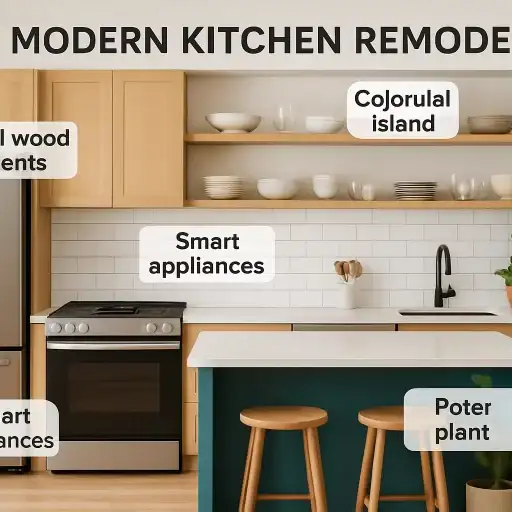Table of Contents
Table of Contents
- Introduction to Appliance Maintenance
- Understanding Appliance Lifespan
- Routine Cleaning Tips
- Identifying Common Appliance Issues
- When to DIY vs. Call a Professional
- Energy Efficiency and Your Appliances
- Storing Appliances Properly
- Safety Measures for Appliance Use
Introduction to Appliance Maintenance
Maintaining household appliances in optimal condition is a continuous endeavor that benefits those who dedicate time to proper care. Routine maintenance improves the efficiency and performance of your devices and significantly prolongs their lifespan. This proactive approach can result in considerable savings, as well-maintained appliances tend to require fewer repairs and can fulfill household needs for a longer duration before needing replacement. Additionally, regular upkeep can avert unexpected malfunctions and the inconvenience of urgent repairs. For example, if you require replacements or specific components, platforms such as Samsungparts can be a valuable resource for obtaining quality parts for timely repairs. Moreover, consistent maintenance allows for the early detection of potential problems, ensuring that your home’s essential appliances operate smoothly without disruption.
Understanding Appliance Lifespan
Every household appliance has a general lifespan, the estimated period in which it operates optimally. For instance, refrigerators are generally expected to last 10-15 years, while dishwashers may require replacement after 9-10 years. It is essential to recognize that these timeframes may differ depending on usage, the quality of the brand, and various environmental conditions. However, regular and proactive maintenance can extend these lifespans significantly, allowing your appliances to serve you well beyond their expected years. Understanding these timelines helps plan future purchases and encourages timely interventions to keep them functioning well.
Routine Cleaning Tips
- Refrigerators: Defrost your freezer regularly, mainly if ice build-up occurs frequently, as this can reduce efficiency and lead to increased energy consumption. Cleaning the coils at the back of the refrigerator can also enhance cooling efficiency, preventing overheating. Wiping the interior shelves and compartments with a mild detergent prevents odors and discourages mold and mildew growth, keeping food safe and fresh.
- Washing Machines: To maintain a fresh-smelling washing machine, run an empty cycle using vinegar once a month. This simple step helps to eliminate odors and reduces the build-up of limescale, which can affect the machine’s performance. Regularly inspecting the machine’s filters and hoses for clogs or wear can prevent sudden breakdowns and maintain efficient water flow.
- Ovens: Grease and grime can accumulate quickly inside ovens, especially with frequent usage. Consistent cleaning with a moist cloth following each use can help avert the formation of stubborn deposits. Deep cleaning the oven every few months, depending on how frequently you cook, is vital in ensuring it remains functional and hygienic.
Identifying Common Appliance Issues
Spotting troubles early can prevent more serious problems and expensive repairs. Listen for unusual noises, often indicating loose components or mechanical issues that may worsen with time. Inefficient performance, such as longer cycle times or uneven cooking, may signal an underlying problem that requires attention. Additionally, overheating is a critical sign that something may be wrong. Immediate inspection and action can prevent further damage or safety hazards.
When to DIY vs. Call a Professional
Understanding the difference between simple DIY fixes and problems that require professional expertise can save you time and effort. Simple issues like replacing a microwave light bulb or unclogging a dishwasher’s drain can often be resolved with essential tools and online guides. However, complex problems like motor failures or electrical issues necessitate the attention of a skilled technician to ensure safe and accurate repairs. Identifying the right moment to consult a professional can prevent further damage and ensure that repairs are carried out correctly on the first attempt.
Energy Efficiency and Your Appliances
Adopting energy-efficient appliances is not only cost-effective but also environmentally responsible. Look for appliances with Energy Star certification, which guarantees that the product meets strict energy efficiency guidelines set forth by authorities. Upgrading outdated appliances to modern, more energy-efficient models can significantly decrease energy usage, resulting in considerable savings on utility expenses over time. Incorporating energy-saving habits, like using cold water settings for laundry and maximizing dishwasher loads, can also make a significant difference.
Storing Appliances Properly
Proper storage techniques significantly prolong the life of your appliances. Devices should be stored in dry, cool places to prevent rust and corrosion. Ensuring they are unplugged when not in use prevents power surges from damaging their components. Keeping appliances clean and dust-free during inactivity also helps maintain efficiency and readiness.
Safety Measures for Appliance Use
Safety should always be a priority when using household appliances to prevent accidents and ensure longevity. Reading the manual provides valuable insights into each device’s operational and safety features. It is essential to routinely examine electrical cords and plugs for indications of damage or deterioration to avert possible electrical risks. Avoid overloading appliances to prevent straining their motors and internal components, which can lead to malfunctions. Always refer to trusted resources like the Consumer Product Safety Commission for up-to-date safety information and guidelines to enhance the safe use of your home appliances.


